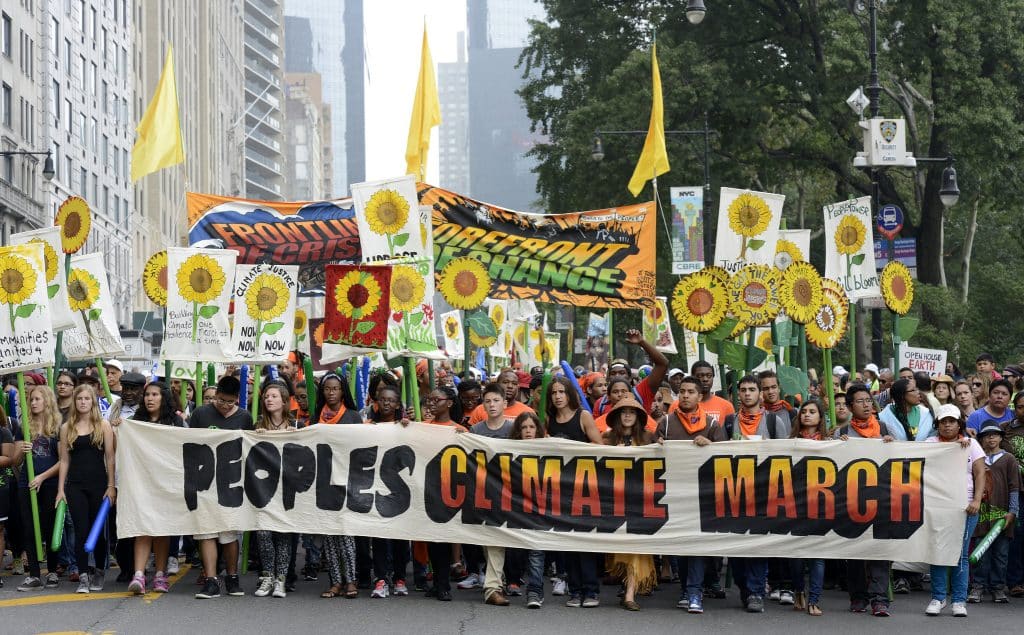Sunday’s climate protests in New York were supported by more than 700 global climate organisations, which called for bolder government action on global warming.
—
New York City was filled with passionate voices and a sense of urgency on Sunday as thousands of climate activists took to the streets to demand immediate action on the global climate crisis. The climate protests, which coincided with the opening of the 78th session of the UN General Assembly, aimed to put pressure on world leaders to prioritise climate change on their agendas.
Organised by a coalition of environmental groups, the demonstrations brought together people from all walks of life, including students, scientists, indigenous communities, and concerned citizens. Chanting slogans and waving colourful banners, they marched through the streets of Manhattan, calling for bold and transformative measures to address the planet’s most pressing environmental challenges.
New York congresswoman Alexandria Ocasio-Cortez, who joined the ‘End of Fossil Fuels’ march on Sunday, said climate action is an “electoral and a popular force that cannot be ignored.”
An estimated 50,000 to 70,000 protesters demanded that world leaders take decisive action to limit global warming to well below 1.5C, as outlined in the Paris Agreement. They emphasised the need for a rapid transition to renewable energy, the protection and restoration of natural ecosystems, and the phasing out of fossil fuels. The urgency of the situation was underscored by a recent alarming report warning that six of the nine planetary boundaries have already exceeded safe limits.
The climate protests in New York City were not only a call for action but also a platform to amplify the voices of those most affected by the climate crisis. Indigenous leaders from various parts of the world spoke passionately about the impacts of climate change on their communities and highlighted the need for climate justice. They stressed the importance of respecting indigenous rights, traditional knowledge, and sustainable practices in any climate mitigation and adaptation efforts.
You might also like: Indigenous People Are Essential for Preventing Biodiversity Loss. They Mustn’t Be Sidelined.
BREAKING: Over 75,000 people are pounding the streets of NYC urging @Potus to #EndFossilFuels & declare a #climateEmergency in the historic March to #EndFossilFuels.
NYC is 🔥🔥🔥! #fastfairforever pic.twitter.com/YgRi6hDdgx
— People vs. Fossil Fuels (@FightFossils) September 17, 2023
The timing of the protests, just days before the start of the UN General Assembly, aimed to send a clear message to world leaders that the time for empty promises and half-hearted commitments is over. The protesters called on governments to enact bold policies, increase climate finance, and forge international collaborations to address the climate emergency.
The demonstrations in New York City were part of a global wave of climate protests, with similar events taking place in other major cities worldwide. From London to Sydney, people united in their demand for immediate and concrete action to safeguard the future of the planet.
The momentum generated by these protests will undoubtedly shape the discussions and negotiations during the General Assembly, setting the stage for critical climate talks in the coming months. The world is looking to its leaders to rise above political differences and prioritise the well-being of the planet and its inhabitants.
Featured image: Stephen Melkisethian/Flickr.
You might also like: Op-Ed: Are Climate Activists Reaching Too Far?


















